Ante Christum¶
Before 2000 BC¶
gilgameš ana šâšumma izakkara ana ūta-napištim rūqi
Gilgamesh spoke to him, to Ūta-napišti the Far-Away
anaṭṭalakkumma ūta-napišti minâtūka ul šanâ kī yâtimma atta u atta ul šanâta kī yâtimma atta gummurka libbī ana epēš tuqunti x ahī nadât elu ṣērīka a kīkī tazziz ina puhur ilāni balāṭa teš’u
“As I look at you, Ūta-napišti, Your form is no different, you are just like me, You are not different at all, you are just like me. I was fully intent on doing battle with you, [but] in your presence my hand is stayed. How was it that you attended the gods’ assembly, and found eternal life?”
ūta-napišti ana šâšumma izakkara ana gilgameš
Ūta-napišti spoke to him, to Gilgamesh:
lupteka gilgameš amāt niṣirti u pirišti ša ilāni kâša luqbika šurippak ālu ša tīdûšu atta ā[lu ša ina kišā]d puratti šaknu [āl]u šū labirma ilāni qerbuššu [an]a šakān abūbi ubla libbašunu ilāni rabûti
“I will disclose to you, Gilgamesh, a secret matter, and I will tell you a mystery of the gods. The city of Shuruppak — a city you yourself know, the [city that] is situated on the [banks] of the Euphrates —that city was old and the gods were inside it, (when) the great gods decided to cause the Deluge.”
—Epic of Gilgamesh, 2500 BC
2000 BC to 1000 BC¶
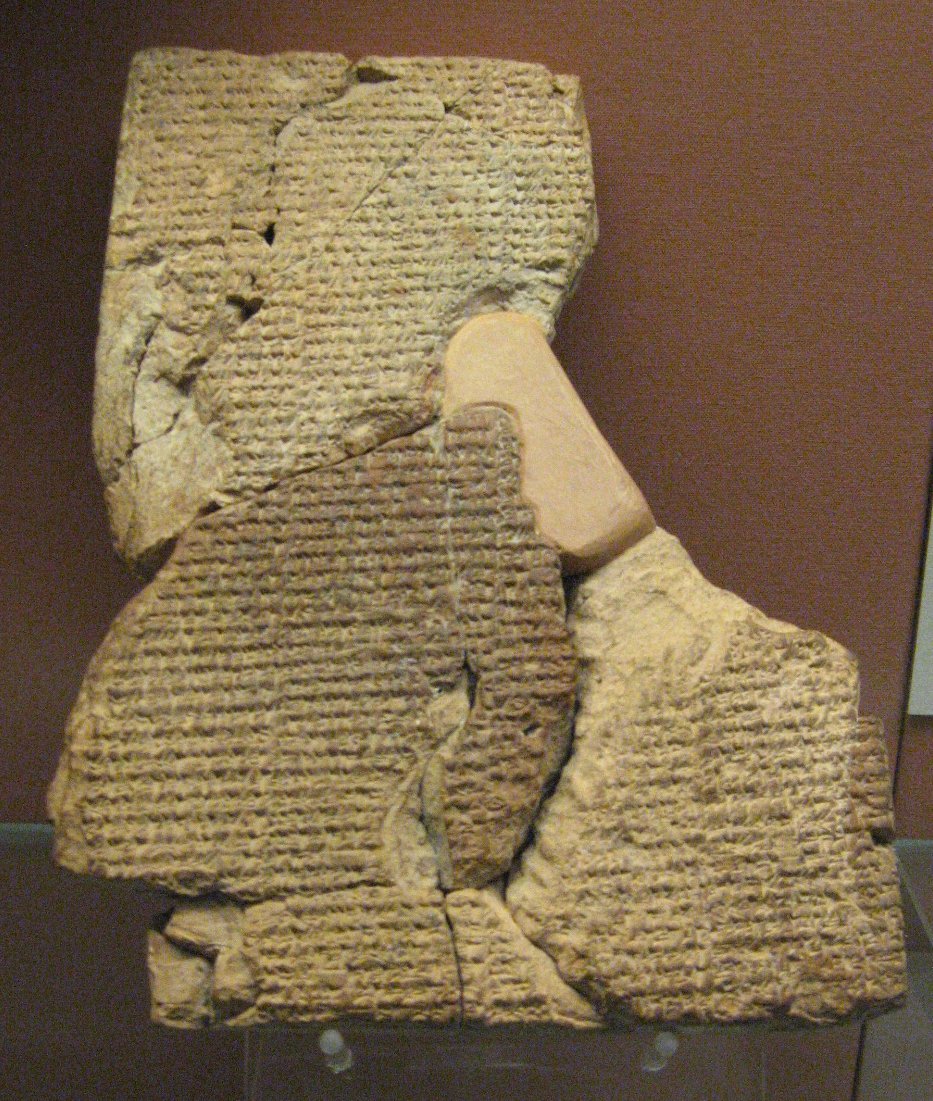
You are the womb-goddess, to be the creator of Mankind!Create a mortal, that he may bear the yoke!Let him bear the yoke, the work of EllilLet him bear the load of the gods!Nintu made her voice heardAnd spoke to the great gods,On the first, seventh, and fifteenth of the monthI shall make a purification by washing.Then one god should be slaughtered.And the gods can be purified by immersion.Nintu shall mix the clayWith his flesh and blood.Then a god and a manWill be mixed together in clay.Let us hear the drumbeat forever after,Let a ghost come into existence from the god’s flesh,Let her proclaim it as her living sign,And let the ghost exist so as not to forget the slain god.They answered “yes” in the assembly,The great Anunnaki who assign the fatesOn the first, seventh, and fifteenth of the monthHe made a purification by washing.Geshtu-E, a god who had intelligence,They slaughtered in their assembly.Nintu mixed claywith his flesh and blood.They heard the drumbeat forever after.A ghost came into existence from the god’s flesh,and she proclaimed it as his living sign.The ghost existed so as not to forget the slain god.After she had mixed that clay,She called up the Anunnaki, the great gods.The Igigi, the great gods,Spat spittle upon the clayMami made her voice heardAnd spoke to the great gods,I have carried out perfectlyThe work that you ordered of me.You have slaughtered a god together with his intelligence.I have relieved you of your hard work,I have imposed your load on man.You have bestowed noise on man,You have bestowed noise on mankind.I have undone the fetter and granted freedom.—Atrahasis, 1800s BC
HERE BEGIN THE PRAISES AND GLORIFYINGS OF COMING OUT FROM AND GOING INTO THE GLORIOUS NETER-KHERT IN THE BEAUTIFUL AMENTA, OF COMING OUT BY DAY IN ALL THE FORMS OF EXISTENCE WHICH PLEASE HIM (i.e., THE DECEASED), OF PLAYING AT DRAUGHTS’ AND SITTING IN THE SEH HALL, AND OF COMING FORTH AS A LIVING SOUL. Behold Osiris, the scribe Ani, after he hath come to his haven [of rest]. That which hath been done upon earth [by Ani] being blessed, all the words of the god Tmu come to pass. “I am the god Tmu in [my] rising; I am the only One. I came into existence in Nu. I am Ra who rose in the beginning. [He hath ruled that which he made.]
Who then is this? It is Ra who rose for the first time in the city of Suten-henen [crowned] as a king in [his] rising. The pillars of Shu were not as yet created, when he was upon the high place of him who is in Khemennu.
“I am the great god who gave birth to himself, even Nu, [who] created his name Paut Neteru as god.”
Who then is this? It is Ra, the creator of the name[s] of his limbs, which came into being in the form of the gods in the train of Ra.
“I am he who is not driven back among the gods.”
—Book of the Dead, Chapter XVIII, Plates V and VI, 1500s BC
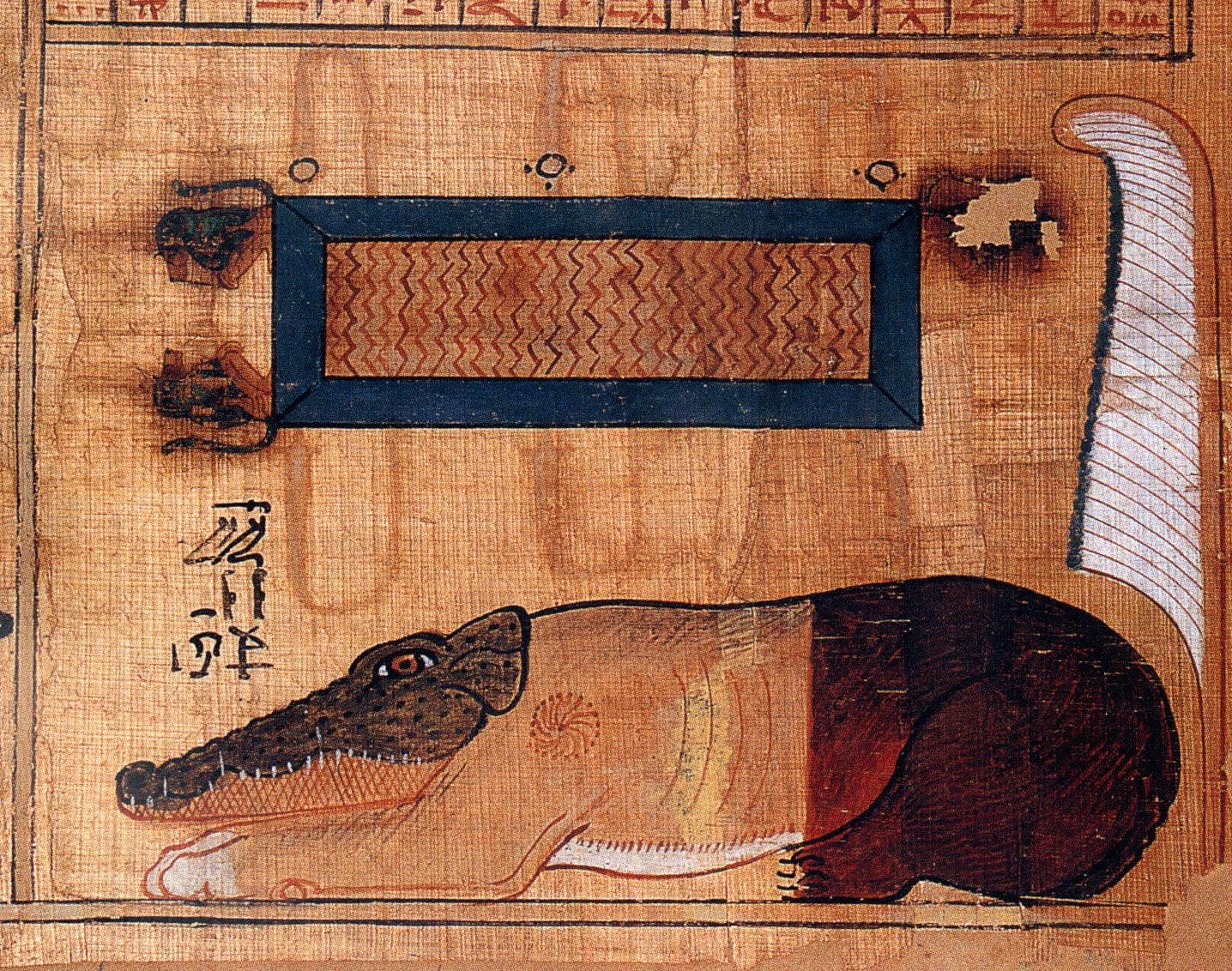
hâvanîm â ratûm â haomô upâit zarathushtrem âtrem pairi-ýaozhdatheñtem gâthåsca srâvayañtem, â-dim peresat zarathushtrô, kô nare ahî ýim azem vîspahe anghêush astvatô sraêshtem dâdaresa hvahe gayehe hvanvatô ameshahe.
At the hour of Havani, Haoma came to Zarathushtra, as he served the (sacred) Fire, and sanctified (its flame), while he sang aloud the Gathas. And Zarathushtra asked him, Who art thou, O honorable one! who art of all the incarnate world the most beautiful in Thine own body of those whom I have, seen, (thou) glorious [immortal]?
âat mê aêm paityaoxta haomô ashava dûraoshô, azem ahmi zarathushtra haomô ashava dûraoshô, â-mãm ýâsanguha spitama frâ-mãm hunvanguha hvaretêe aoi mãm staomaine stûidhi ýatha mâ aparacit saoshyañtô stavãn.
Thereupon gave Haoma answer, the holy one who driveth death afar, I am, O Zarathushtra Haoma, the holy and driving death afar; pray to me, O Spitama, prepare me for the taste. Praise me so that also the other Saoshyants [benefactors] may praise me.
âat aoxta zarathushtrô, nemô haomâi zôt, kase-thwãm paoiryô haoma mashyô astvaithyâi hunûta gaêthyâi, kâ ahmâi ashish erenâvi cit ahmâi jasat âyaptem.
Thereupon spake Zarathushtra, Unto Haoma be the praise. What man, O Haoma! first prepared thee for the corporeal world? What award was offered him? what gain did he acquire?
âat mê aêm paityaoxta haomô ashava dûraoshô, vîvanghå mãm paoiryô mashyô astvaithyâi hunûta gaêthyâi, hâ ahmâi ashish erenâvi tat ahmâi jasat âyaptem ýat hê puthrô us-zayata ýô ýimô xshaêtô hvãthwô hvarenanguhastemô zâtanãm hvare-daresô mashyânãm, ýat kerenaot ainghe xshathrâdha amarsheñta pasu vîra anghaoshemne âpa urvaire hvairyãn hvarethem ajayamnem.
Thereupon did Haoma answer me, he the holy one, and driving death afar, Vivanghvant was the first of men who prepared me for the incarnate world. This award was offered him; this gain did he acquire, that to him was born a son who was Yima, called the brilliant, (he of the many flocks, the most glorious of those yet born, the sunlike-one of men), that he made from his authority both herds and people free from dying, both plants and waters free from drought, and men could eat inexhaustible food.
ýimahe xshathre aurvahe nôit aotem ångha nôit garemem nôit zaurva ångha nôit merethyush nôit araskô daêvô-dâtô, pañca-dasa fracarôithe pita puthrasca raodhaêshva katarascit ýavata xshayôit hvãthwô ýimô vîvanguhatô puthrô.
In the reign of brave Yima was there neither cold nor heat, there was neither age nor death, nor envy demon-made. Like teenagers walked the two forth, son and father, in their stature and their form, so long as Yima, son of Vivanghvant ruled, he of the many herds!
kase-thwãm bityô haoma mashyô astvaithyâi hunûta gaêthyâi, kâ ahmâi ashish erenâvi cit ahmâi jasat âyaptem.
Who was the second man, O Haoma! who prepared thee for the corporeal world? What award was offered him? what gain did he acquire?
âat mê aêm paityaoxta haomô ashava dûraoshô, âthwyô mãm bityô mashyô astvaithyâi hunûta gaêthyâi, hâ ahmâi ashish erenâvi tat ahmâi jasat âyaptem ýat hê puthrô us-zayata vîsô sûrayå thraêtaonô,
Thereupon gave Haoma answer, he the holy one, and driving death afar: Athwya was the second who prepared-me for the corporeal world. This award was given him, this gain did he acquire, that to him a son was born, Thraetaona of the mighty clan,
ýô janat azhîm dahâkem thrizafanem thrikameredhem xshvash-ashîm hazangrâ-ýaoxshtîm ashaojanghem daêvîm drujem akhem gaêthâvyô drvañtem ýãm ashaojastemãm drujem fraca kereñtat angrô mainyush aoi ýãm astvaitîm gaêthãm mahrkâi ashahe gaêthanãm.
Who smote Azhi Dahaka, three-jawed and triple-headed, six-eyed, with thousand perceptions, and of mighty strength, a lie-demon [druj] of the Daevas, evil for our settlements, and wicked, whom the evil spirit Angra Mainyu made as the most mighty Druj [against the corporeal world], and for the murder of (our) settlements, and to slay the (homes) of Asha!
—Avesta, The Hom Yasht, 1400s BC
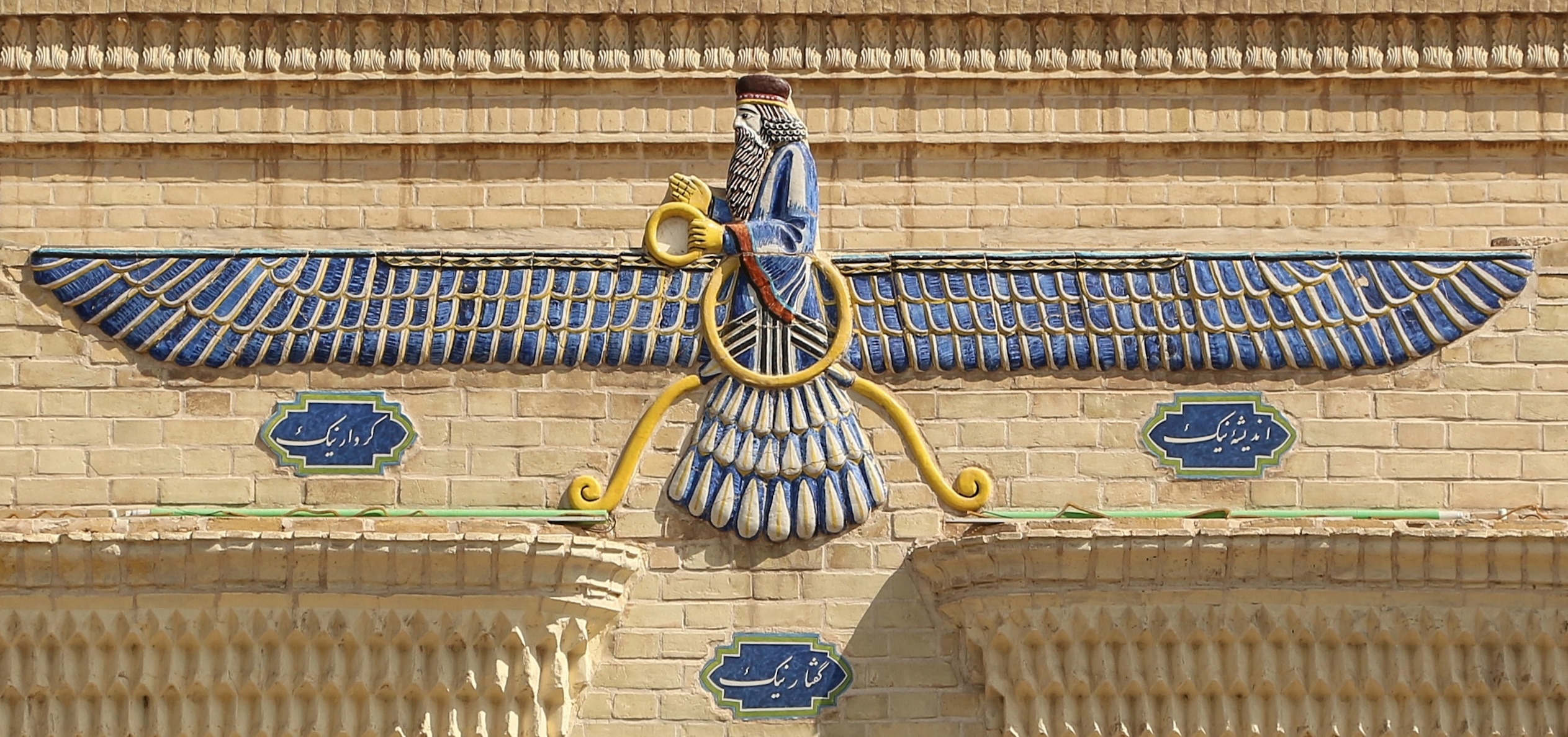
𒂊𒉡𒈠 𒂊𒇺 𒆷la 𒈾𒁍𒌋 𒊭𒈠𒈬When the heaven above was not named,
𒉺𒅁𒇺 𒄠𒈠𒌈 𒋗𒈠 𒆷 𒍠𒋥the earth below was not called by name
𒍪𒀊𒌝𒈠 𒊕𒌅𒌋 𒍝𒊒𒋗𒌦but Apsu, the primeval, their progenitor,
𒈬𒌝𒈬 𒋾𒊩𒆳 𒈬𒀠𒇷𒁕𒀜 𒁶𒊑𒋗𒌦Mummu and Tiamat, who bore all of them,
𒈨𒋗𒉡 𒅖𒋼 𒄿𒄭𒆪𒈠their waters as one they mingled:
𒄀𒉺𒊏 𒆷 𒆠𒄑𒋢𒊒 𒋢𒊓𒀀 𒆷la 𒊺𒄿𒌋when reeds were not yet matted together, marshes had not yet appeared,
𒂊𒉡𒈠 𒀭𒀭 𒆷 𒋗𒁍𒌋 𒈠𒈾𒈠when the gods had not yet been fashioned, not one,
𒋗𒈠 𒆷 𒆪𒊒 𒅆𒈠𒋫 𒆷 𒅆𒄿𒈬none was called by name, destinies were not fixed:
𒅁𒁀𒉡𒈠 𒀭𒀭 𒆠𒆗𒋗𒌦then the gods were created in their midst.
—Enūma Eliš, 1200s BC
1000 BC to 0 BC¶
וְהָאָ֗רֶץ הָיְתָ֥ה תֹ֙הוּ֙ וָבֹ֔הוּ וְחֹ֖שֶׁךְ עַל־פְּנֵ֣י תְה֑וֹם וְר֣וּחַ אֱלֹהִ֔ים מְרַחֶ֖פֶת עַל־פְּנֵ֥י הַמָּֽיִם
the earth being unformed and void, with darkness over the surface of the deep and a wind from God sweeping over the water—וַיֹּ֥אמֶר אֱלֹהִ֖ים יְהִ֣י א֑וֹר וַֽיְהִי־אֽוֹר
God said, “Let there be light”; and there was light.וַיַּ֧רְא אֱלֹהִ֛ים אֶת־הָא֖וֹר כִּי־ט֑וֹב וַיַּבְדֵּ֣ל אֱלֹהִ֔ים בֵּ֥ין הָא֖וֹר וּבֵ֥ין הַחֹֽשֶׁךְ
God saw that the light was good, and God separated the light from the darkness.
Tanakh, 600s BC
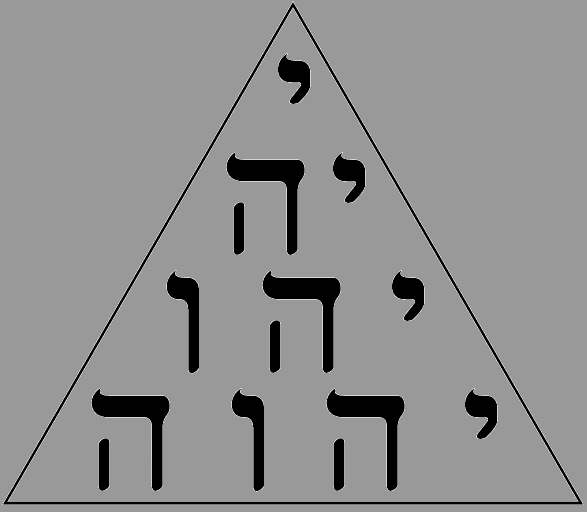
וַיָּשִׂ֣ימוּ שִׁקּוּצֵיהֶ֗ם בַּבַּ֛יִת אֲשֶׁר־נִקְרָֽא־שְׁמִ֥י עָלָ֖יו לְטַמְּאֽוֹ
They placed their abominations in the House that bears My name and defiled it;וַיִּבְנוּ֩ אֶת־בָּמ֨וֹת הַבַּ֜עַל אֲשֶׁ֣ר׀ בְּגֵ֣יא בֶן־הִנֹּ֗ם לְ֠הַעֲבִ֠יר אֶת־בְּנֵיהֶ֣ם וְאֶת־בְּנוֹתֵיהֶם֮ לַמֹּ֒לֶךְ֒ אֲשֶׁ֣ר לֹֽא־צִוִּיתִ֗ים וְלֹ֤א עָֽלְתָה֙ עַל־לִבִּ֔י לַעֲשׂ֖וֹת הַתּוֹעֵבָ֣ה הַזֹּ֑את לְמַ֖עַן הַחֲטִ֥י אֶת־יְהוּדָֽה
and they built the shrines of Baal that are in the Valley of Ben-hinnom, where they offered up their sons and daughters to Molech—when I had never commanded, or even thought [of commanding], that they should do such an abominable thing, and so bring guilt on Judah.—Tanakh, Jeremiah 32:34-35, 600s BC
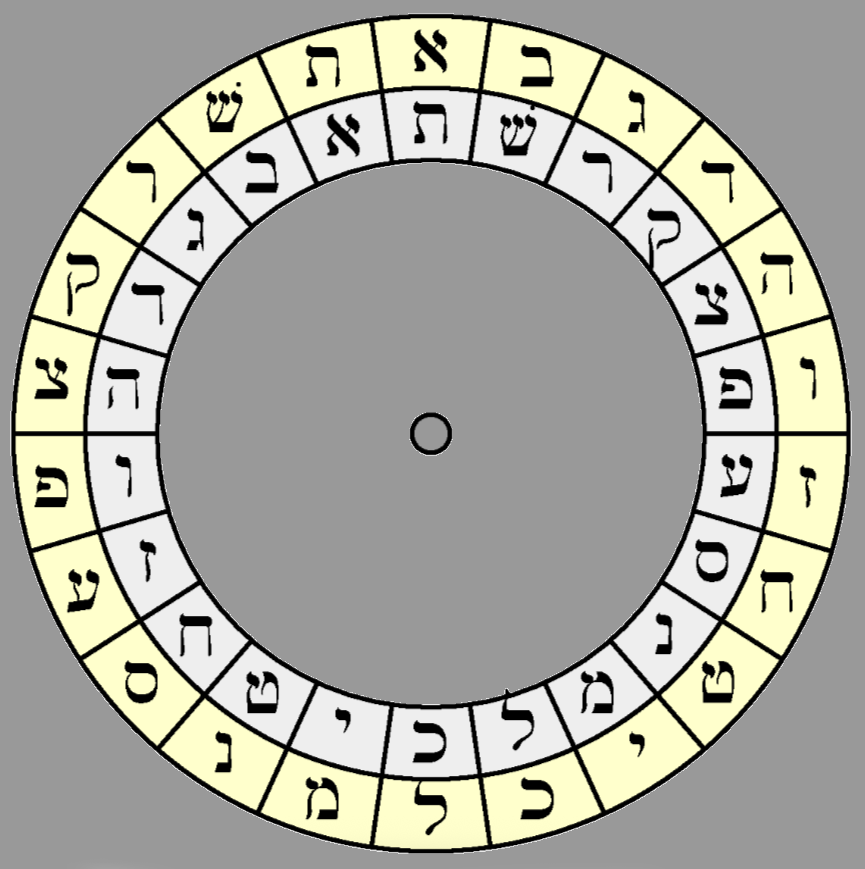
Πέρσας δὲ οἶδα νόμοισι τοιοῖσιδε χρεωμένους, ἀγάλματα μὲν καὶ νηοὺς καὶ βωμοὺς οὐκ ἐν νόμῳ ποιευμένους ἱδρύεσθαι, ἀλλὰ καὶ τοῖσι ποιεῦσι μωρίην ἐπιφέρουσι, ὡς μὲν ἐμοὶ δοκέειν, ὅτι οὐκ ἀνθρωποφυέας ἐνόμισαν τοὺς θεοὺς κατά περ οἱ Ἕλληνες εἶναι· οἳ δὲ νομίζουσι Διὶ μὲν ἐπὶ τὰ ὑψηλότατα τῶν ὀρέων ἀναβαίνοντες θυσίας ἔρδειν, τὸν κύκλον πάντα τοῦ οὐρανοῦ Δία καλέοντες· θύουσι δὲ ἡλίῳ τε καὶ σελήνῃ καὶ γῇ καὶ πυρὶ καὶ ὕδατι καὶ ἀνέμοισι. τούτοισι μὲν δὴ θύουσι μούνοισι ἀρχῆθεν, ἐπιμεμαθήκασι δὲ καὶ τῇ Οὐρανίῃ θύειν, παρά τε Ἀσσυρίων μαθόντες καὶ Ἀραβίων. καλέουσι δὲ Ἀσσύριοι τὴν Ἀφροδίτην Μύλιττα, Ἀράβιοι δὲ Ἀλιλάτ, Πέρσαι δὲ Μίτραν.
These are the customs, so far as I know, which the Persians practise. Images and temples and altars they do not account it lawful to erect, nay they even charge with folly those who do these things; and this, as it seems to me, because they do not account the gods to be in the likeness of men, as do the Hellenes. But it is their wont to perform sacrifices to Zeus going up to the most lofty of the mountains, and the whole circle of the heavens they call Zeus, and they sacrifice to the Sun and the Moon and the Earth, to Fire and to Water and to the Winds: these are the only gods to whom they have sacrificed ever from the first; but they have learnt also to sacrifice to Aphrodite Urania, having learnt it both from the Assyrians and the Arabians; and the Assyrians call Aphrodite Mylitta, the Arabians Alitta, and the Persians Mitra.
θυσίη δὲ τοῖσι Πέρσῃσι περὶ τοὺς εἰρημένους θεοὺς ἥδε κατέστηκε· οὔτε βωμοὺς ποιεῦνται οὔτε πῦρ ἀνακαίουσι μέλλοντες θύειν, οὐ σπονδῇ χρέωνται, οὐκὶ αὐλῷ, οὐ στέμμασι, οὐκὶ οὐλῇσι· τῶν δὲ ὡς ἑκάστῳ θύειν θέλῃ, ἐς χῶρον καθαρὸν ἀγαγὼν τὸ κτῆνος καλέει τὸν θεόν, ἐστεφανωμένος τὸν τιάραν μυρσίνῃ μάλιστα. ἑωυτῷ μὲν δὴ τῷ θύοντι ἰδίῃ μούνῳ οὔ οἱ ἐγγίνεται ἀρᾶσθαι ἀγαθά, ὁ δὲ τοῖσι πᾶσι Πέρσῃσι κατεύχεται εὖ γίνεσθαι καὶ τῷ βασιλέι· ἐν γὰρ δὴ τοῖσι ἅπασι Πέρσῃσι καὶ αὐτὸς γίνεται. ἐπεὰν δὲ διαμιστύλας κατὰ μέλεα τὸ ἱρήιον ἑψήσῃ τὰ κρέα ὑποπάσας ποίην ὡς ἁπαλωτάτην, μάλιστα δὲ τὸ τρίφυλλον, ἐπὶ ταύτης ἔθηκε ὦν πάντα τὰ κρέα. διαθέντος δὲ αὐτοῦ Μάγος ἀνὴρ παρεστεὼς ἐπαείδει θεογονίην, οἵην δὴ ἐκεῖνοι λέγουσι εἶναι τὴν ἐπαοιδήν· ἄνευ γὰρ δὴ Μάγου οὔ σφι νόμος ἐστὶ θυσίας ποιέεσθαι. ἐπισχὼν δὲ ὀλίγον χρόνον ἀποφέρεται ὁ θύσας τὰ κρέα καὶ χρᾶται ὅ τι μιν λόγος αἱρέει.
Now this is the manner of sacrifice for the gods aforesaid which is established among the Persians. They make no altars neither do they kindle fire; and when they mean to sacrifice they use no libation nor music of the pipe nor chaplets nor meal for sprinkling; but when a man wishes to sacrifice to any one of the gods, he leads the animal for sacrifice to an unpolluted place and calls upon the god, having his tiara wreathed round generally with a branch of myrtle. For himself alone separately the man who sacrifices may not request good things in his prayer, but he prays that it may be well with all the Persians and with the king; for he himself also is included of course in the whole body of Persians. And when he has cut up the victim into pieces and boiled the flesh, he spreads a layer of the freshest grass and especially clover, upon which he places forthwith all the pieces of flesh; and when he has placed them in order, a Magian man stands by them and chants over them a theogony (for of this nature they say that their incantation is), seeing that without a Magian it is not lawful for them to make sacrifices. Then after waiting a short time the sacrificer carries away the flesh and uses it for whatever purpose he pleases.
—The Histories, Herodotus, 430 BC
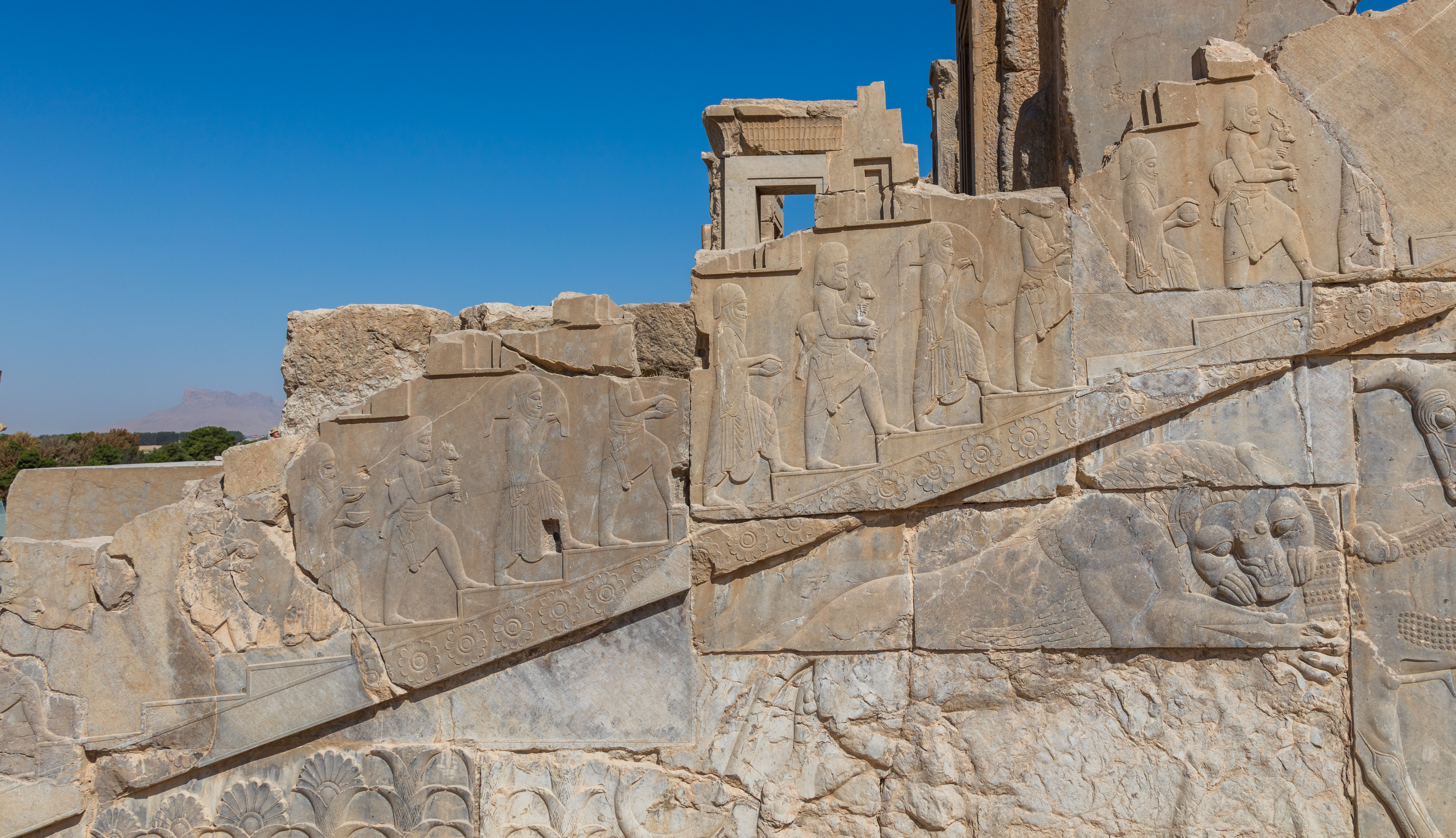
And they answered, all of them, and said to him, Let us all swear an oath and all bind one another that we shall not any of us turn aside from this counsel until we do this deed. Then they all swore together and bound one another by imprecations. And they were all of these two hundred who came down in the days of Jared on the summit of Mount Hermon; and they called the mount Hermon because they swore and bound one another by imprecations upon it. And these are the names of their leaders. Semihazah who was their chief; Artqoph, the second to him; Ramt’el, third to him; Kokab’el, fourth to him; ‘el, fifth to him; Ram’el, sixth to him; Dani’el, seventh to him; Zeqi’el, eighth to him; Baraq’el, ninth to him; Asa’el, tenth to him; Hermoni, eleventh to him; Matar’el, twelfth to him; Anan’el, thirteenth to him; Staw’el, fourteenth to him; Samsi’el, fifteenth to him; Sahri’el, sixteenth to him; Tummi’el, seventeenth to him; Turi’el, eighteenth to him; Yomi’el, nineteenth to him; Yhaddi’el, twentieth to him. These are the chiefs of the chiefs of tens. Those two hundred and their leaders all took for themselves wives from all that they chose; and they began to go in to them, and to defile themselves with them and they began to teach them sorcery and spell-binding, and the cutting the roots; and they showed them herbs. And they became pregnant by them and bare giants three thousand cubits high who were born and multiplied on the earth according to the kind of their childhood, and growing up according to the kind of their adolescence, and they were devouring the labour of all the sons of men and men were unable to supply them. But the giants conspired to slay men, and to devour them. And they began to sin against all birds and beasts of the earth, and reptiles which creep upon the earth and creatures in the waters, and in the heaven, and the fish of the sea, and to devour the flesh of one another, and they were drinking blood. Then the earth made the accusation against the wicked, concerning everything which was done upon it.
Asa’el taught men to make.
—Book of Enoch, 300s BC
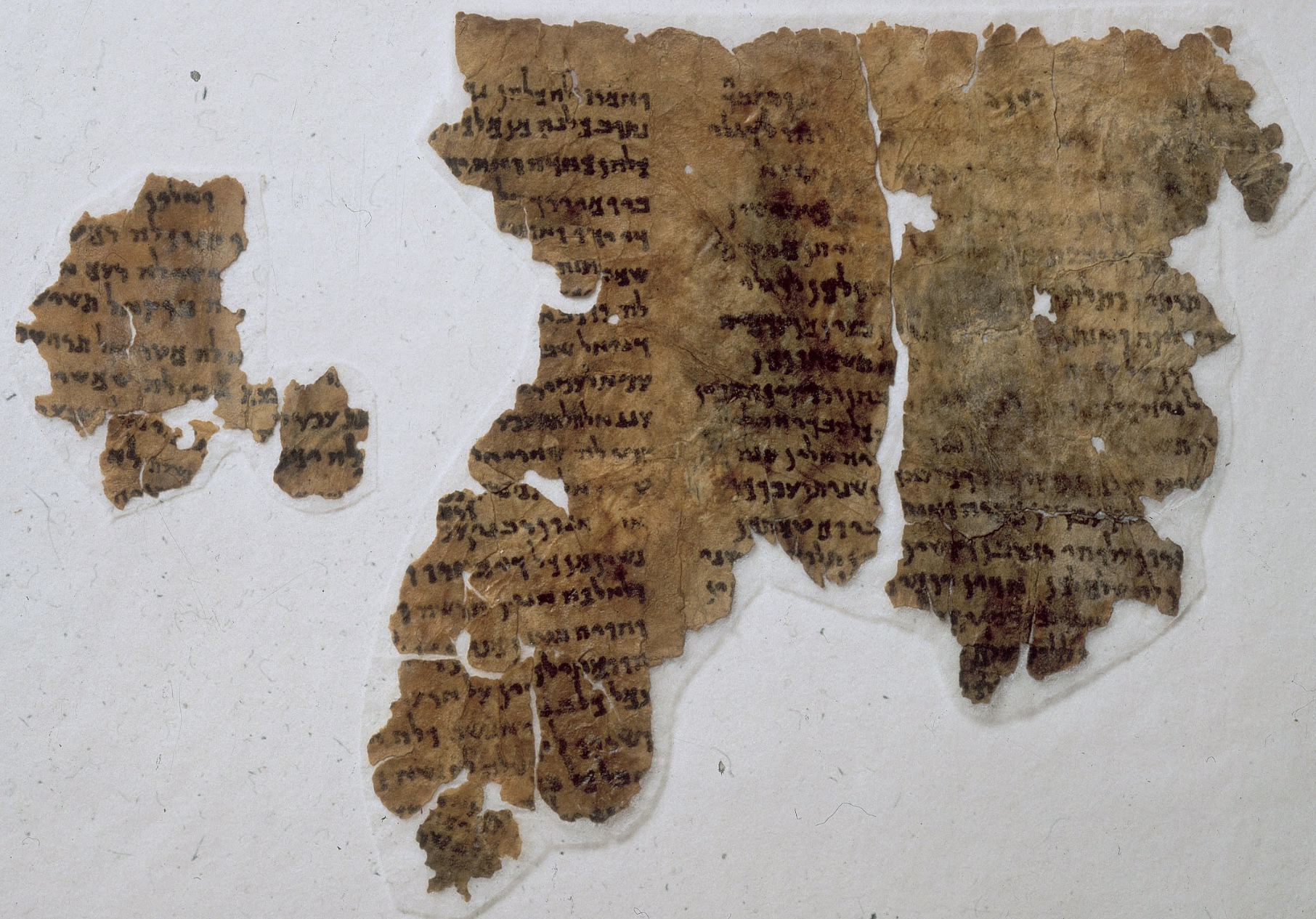
|
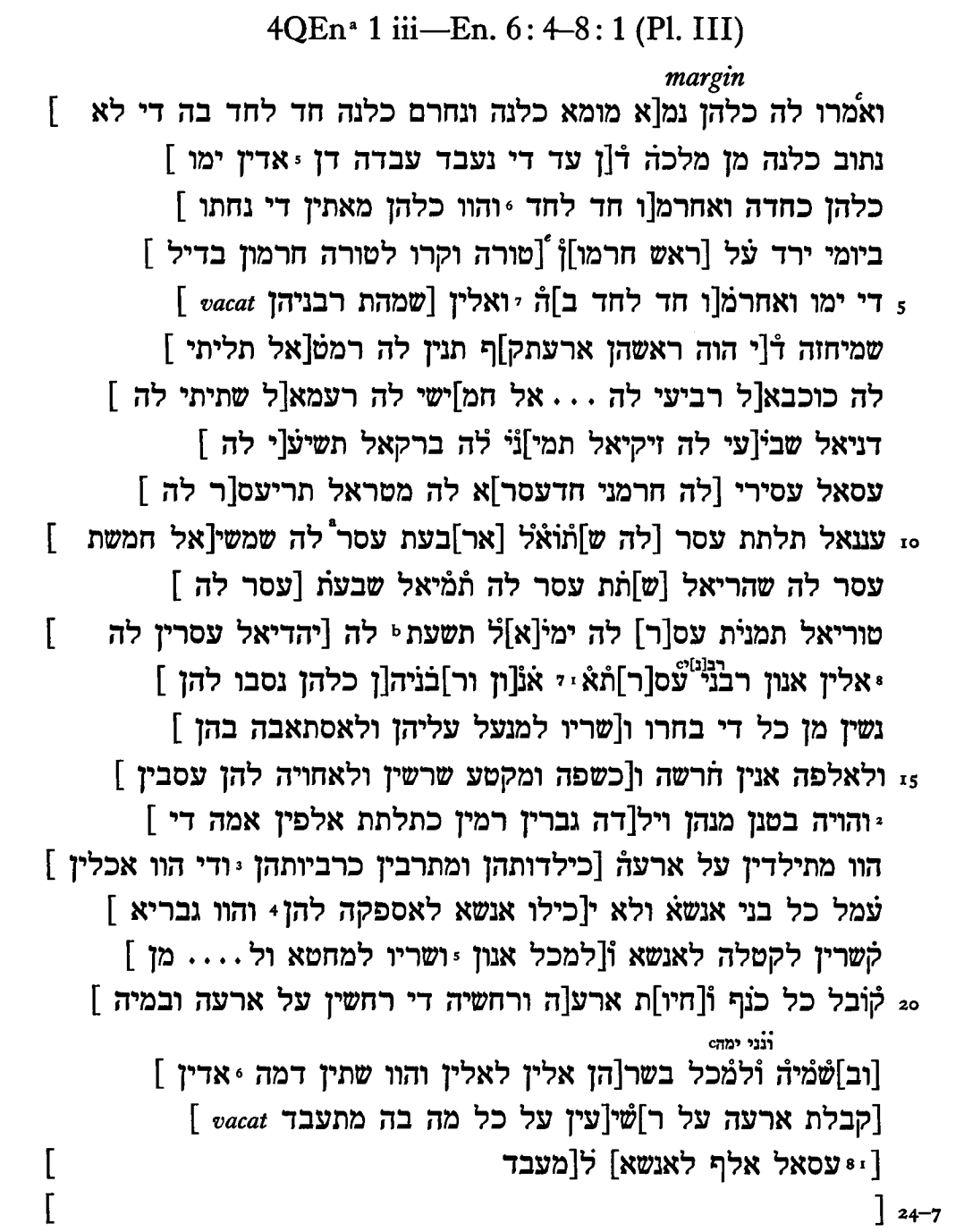
|
εἰπόντος ταῦτα ἐπὶ πλείονα χρόνον ἀντώπησέ μοι, ὥστε με τρέμειν αὐτοῦ τὴν ἰδέαν· ἀνανεύσαντος δέ, θεωρῶ ἐν τῷ νοΐ μου τὸ φῶς ἐν δυνάμεσιν ἀναριθμήτοις ὄν, καὶ κόσμον ἀπεριόριστον γεγενημένον, καὶ περιίσχεσθαι τὸ πῦρ δυνάμει μεγίστῃ, καὶ στάσιν ἐσχηκέναι κρατούμενον· ταῦτα δὲ ἐγὼ διενοήθην ὁρῶν διὰ τὸν τοῦ Ποιμάνδρου λόγον. ὡς δὲ ἐν ἐκπλήξει μου ὄντος, φησὶ πάλιν ἐμοί, Εἶδες ἐν τῷ νῷ τὸ ἀρχέτυπον εἶδος, τὸ προάρχον τῆς ἀρχῆς τῆς ἀπεράντου· ταῦτα ὁ Ποιμάνδρης ἐμοί.
But as I was in great astonishment, He saith to me again: Thou didst behold in Mind the Archetypal Form whose being is before beginning without end. Thus spake to me Man-Shepherd.
Τὰ οὖν, ἐγώ φημι, στοιχεῖα τῆς φύσεως πόθεν ὑπέστη;
And I say: Whence then have Nature’s elements their being?
πάλιν ἐκεῖνος πρὸς ταῦτα, Ἐκ βουλῆς θεοῦ, ἥτις λαβοῦσα τὸν Λόγον καὶ ἰδοῦσα τὸν καλὸν κόσμον ἐμιμήσατο, κοσμοποιηθεῖσα διὰ τῶν ἑαυτῆς στοιχείων καὶ γεννημάτων ψυχῶν.
To this He answer gives: From Will of God. [Nature] received the Word (Logos), and gazing upon the Cosmos Beautiful did copy it, making herself into a cosmos, by means of her own elements and by the births of souls.
ὁ δὲ Νοῦς ὁ θεός, ἀρρενόθηλυς ὤν, ζωὴ καὶ φῶς ὑπάρχων, ἀπεκύησε λόγῳ ἕτερον Νοῦν δημιουργόν, ὃς θεὸς τοῦ πυρὸς καὶ πνεύματος ὤν, ἐδημιούργησε διοικητάς τινας ἑπτά, ἐν κύκλοις περιέχοντας τὸν αἰσθητὸν κόσμον, καὶ ἡ διοίκησις αὐτῶν εἱμαρμένη καλεῖται.
And God-the-Mind, being male and female both, as Light and Life subsisting, brought forth another Mind to give things form, who, God as he was of Fire and Spirit, formed Seven Rulers who enclose the cosmos that the sense perceives. Men call their ruling Fate.
ἐπήδησεν εὐθὺς ἐκ τῶν κατωφερῶν στοιχείων [τοῦ θεοῦ] ὁ τοῦ θεοῦ Λόγος εἰς τὸ καθαρὸν τῆς φύσεως δημιούργημα, καὶ ἡνώθη τῷ δημιουργῷ Νῷ (ὁμοούσιος γὰρ ἦν), καὶ κατελείφθη [τὰ] ἄλογα τὰ κατωφερῆ τῆς φύσεως στοιχεῖα, ὡς εἶναι ὕλην μόνην.
Straightway from out the downward elements God’s Reason (Logos) leaped up to Nature’s pure formation, and was at-oned with the Formative Mind; for it was co-essential with it. And Nature’s downward elements were thus left reason-less, so as to be pure matter.
—Poemandres, the Shepherd of Men, 300s BC
πολλὰ μὲν οὖν ὑμῶν καὶ μεγάλα ἔργα τῆς πόλεως τῇδε γεγραμμένα θαυμάζεται͵πάντων μὴν ἓν ὑπερέχει μεγέθει καὶ ἀρετῇ· λέγει γὰρ τὰ γεγραμμένα ὅσην ἡ πόλις ὑμῶν ἔπαυσέν ποτε δύναμιν ὕβρει πορευομένην ἅμα ἐπὶ πᾶσαν Εὐρώπην καὶ Ἀσίαν͵ ἔξωθεν ὁρμηθεῖσαν ἐκ τοῦ Ἀτλαντικοῦ πελάγους. τότε γὰρ πορεύσιμον ἦν τὸ ἐκεῖ πέλαγος· νῆσον γὰρ πρὸ τοῦ στόματος εἶχεν ὃ καλεῖτε͵ ὥς φατε͵ ὑμεῖς Ἡρακλέους στήλας͵ ἡ δὲ νῆσος ἅμα Λιβύης ἦν καὶ Ἀσίας μείζων͵ ἐξ ἧς ἐπιβατὸν ἐπὶ τὰς ἄλλας νήσους τοῖς τότε ἐγίγνετο πορευομένοις͵ ἐκ δὲ τῶν νήσων ἐπὶ τὴν καταντικρὺ πᾶσαν ἤπειρον τὴν περὶ τὸν ἀληθινὸν ἐκεῖνον πόντον. τάδε μὲν γάρ͵ ὅσα ἐντὸς τοῦ στόματος οὗ λέγομεν͵ φαίνεται λιμὴν στενόν τινα ἔχων εἴσπλουν· ἐκεῖνο δὲ πέλαγος ὄντως ἥ τε περιέχουσα αὐτὸ γῆ παντελῶς ἀληθῶς ὀρθότατ΄ ἂν λέγοιτο ἤπειρος. ἐν δὲ δὴ τῇ Ἀτλαντίδι νήσῳ ταύτῃ μεγάλη συνέστη καὶ θαυμαστὴ δύναμις βασιλέων͵ κρατοῦσα μὲν ἁπάσης τῆς νήσου͵ πολλῶν δὲ ἄλλων νήσων καὶ μερῶν τῆς ἠπείρου· πρὸς δὲ τούτοις ἔτι τῶν ἐντὸς τῇδε Λιβύης μὲν ἦρχον μέχρι πρὸς Αἴγυπτον͵ τῆς δὲ Εὐρώπης μέχρι Τυρρηνίας. αὕτη δὴ πᾶσα συναθροισθεῖσα εἰς ἓν ἡ δύναμις τόν τε παρ΄ ὑμῖν καὶ τὸν παρ΄ ἡμῖν καὶ τὸν ἐντὸς τοῦ στόματος πάντα τόπον μιᾷ ποτὲ ἐπεχείρησεν ὁρμῇ δουλοῦσθαι. τότε οὖν ὑμῶν͵ ὦ Σόλων͵ τῆς πόλεως ἡ δύναμις εἰς ἅπαντας ἀνθρώπους διαφανὴς ἀρετῇ τε καὶ ῥώμῃ ἐγένετο· πάντων γὰρ προστᾶσα εὐψυχίᾳ καὶ τέχναις ὅσαι κατὰ πόλεμον͵ τὰ μὲν τῶν Ἑλλήνων ἡγουμένη͵ τὰ δ΄ αὐτὴ μονωθεῖσα ἐξ ἀνάγκης τῶν ἄλλων ἀποστάντων͵ ἐπὶ τοὺς ἐσχάτους ἀφικομένη κινδύνους͵ κρατήσασα μὲν τῶν ἐπιόντων τρόπαιον ἔστησεν͵ τοὺς δὲ μήπω δεδουλωμένους διεκώλυσεν δουλωθῆναι͵ τοὺς δ΄ ἄλλους͵ ὅσοι κατοικοῦμεν ἐντὸς ὅρων Ἡρακλείων͵ ἀφθόνως ἅπαντας ἠλευθέρωσεν. ὑστέρῳ δὲ χρόνῳ σεισμῶν ἐξαισίων καὶ κατακλυσμῶν γενομένων͵ μιᾶς ἡμέρας καὶ νυκτὸς χαλεπῆς ἐπελθούσης͵ τό τε παρ΄ ὑμῖν μάχιμον πᾶν ἁθρόον ἔδυ κατὰ γῆς͵ ἥ τε Ἀτλαντὶς νῆσος ὡσαύτως κατὰ τῆς θαλάττης δῦσα ἠφανίσθη· διὸ καὶ νῦν ἄπορον καὶ ἀδιερεύνητον γέγονεν τοὐκεῖ πέλαγος͵ πηλοῦ κάρτα βραχέος ἐμποδὼν ὄντος͵ ὃν ἡ νῆσος ἱζομένη παρέσχετο.
For these histories tell of a mighty power which unprovoked made an expedition against the whole of Europe and Asia, and to which your city put an end. This power came forth out of the Atlantic Ocean, for in those days the Atlantic was navigable; and there was an island situated in front of the straits which are by you called the Pillars of Heracles; the island was larger than Libya and Asia put together, and was the way to other islands, and from these you might pass to the whole of the opposite continent which surrounded the true ocean; for this sea which is within the Straits of Heracles is only a harbour, having a narrow entrance, but that other is a real sea, and the surrounding land may be most truly called a boundless continent. Now in this island of Atlantis there was a great and wonderful empire which had rule over the whole island and several others, and over parts of the continent, and, furthermore, the men of Atlantis had subjected the parts of Libya within the columns of Heracles as far as Egypt, and of Europe as far as Tyrrhenia. This vast power, gathered into one, endeavoured to subdue at a blow our country and yours and the whole of the region within the straits; and then, Solon, your country shone forth, in the excellence of her virtue and strength, among all mankind. She was pre-eminent in courage and military skill, and was the leader of the Hellenes. And when the rest fell off from her, being compelled to stand alone, after having undergone the very extremity of danger, she defeated and triumphed over the invaders, and preserved from slavery those who were not yet subjugated, and generously liberated all the rest of us who dwell within the pillars. But afterwards there occurred violent earthquakes and floods; and in a single day and night of misfortune all your warlike men in a body sank into the earth, and the island of Atlantis in like manner disappeared in the depths of the sea. For which reason the sea in those parts is impassable and impenetrable, because there is a shoal of mud in the way; and this was caused by the subsidence of the island.
—Timaeus, Plato, 360s BC
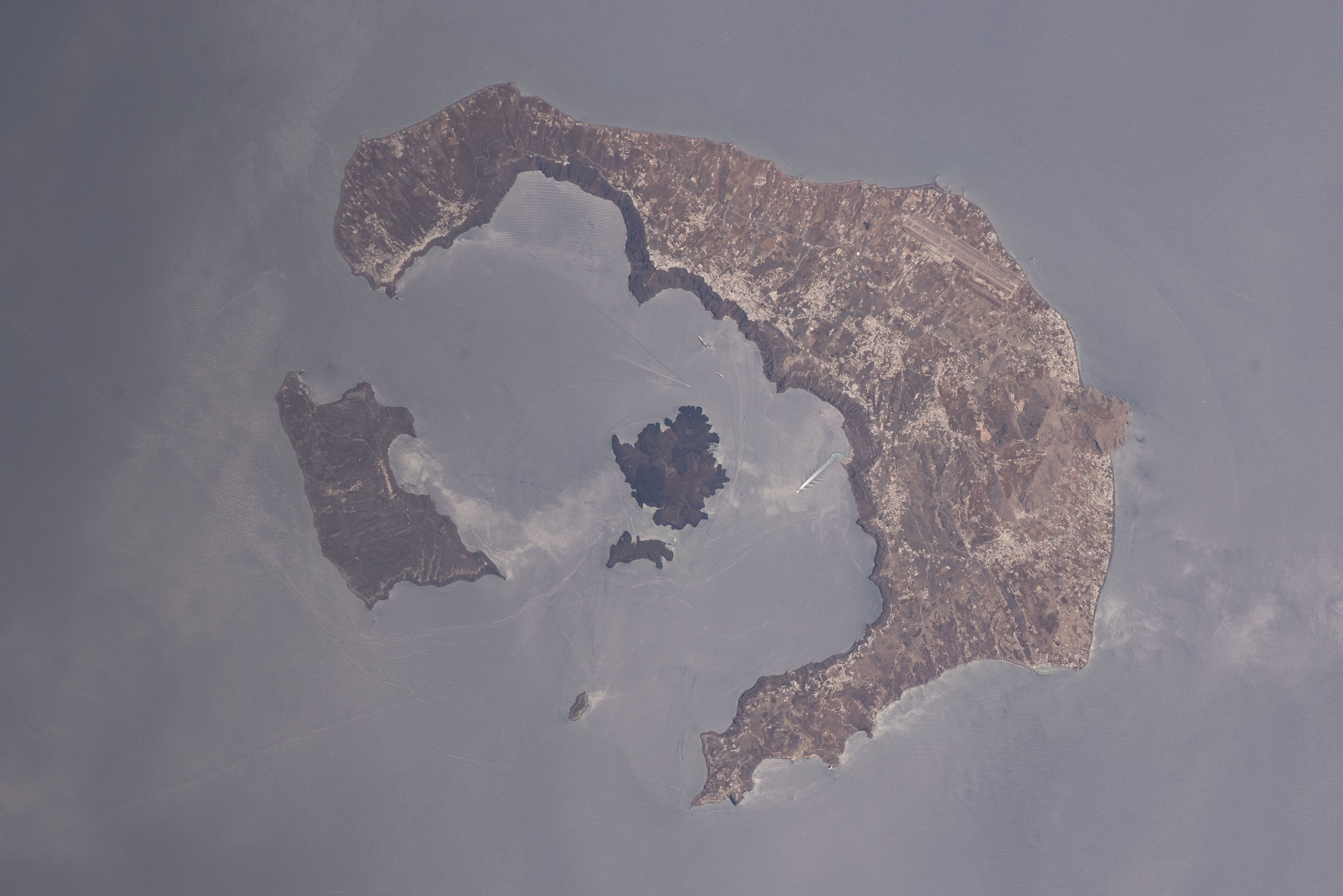
שבע כפולות בג”ד כפר”ת חקקן חצבן צרפן וצר בהם כוכבים בעולם וימים בשנה ושערים בנפש ומהן חקק שבעה רקיעים ושבע אדמות ושבע שבתות לפיכך חבב שביעי תחת כל השמים:
Seven Pairs, Begad-Kafrat. He carved them, hewed them, exchanged them, and formed with them the stars in the World and days in the Year and gates in the Person. He carved out of them the Seven Firmaments, and Seven Earths, and Seven Sabbaths; for this reason, He loved the Seventh Day more than anything under all the heavens.כיצד המליך אות ב’ בחיים וקשר לו כתר וצר בו שבתי בעולם ויום ראשון בשנה ועין ימין בנפש:
How? He made the letter Bet reign over Life, and He bound to it a crown, and formed with it Saturn in the World, and Sunday in the Year, and the right eye in the Person.—Sefer Yezirah, 200s BC
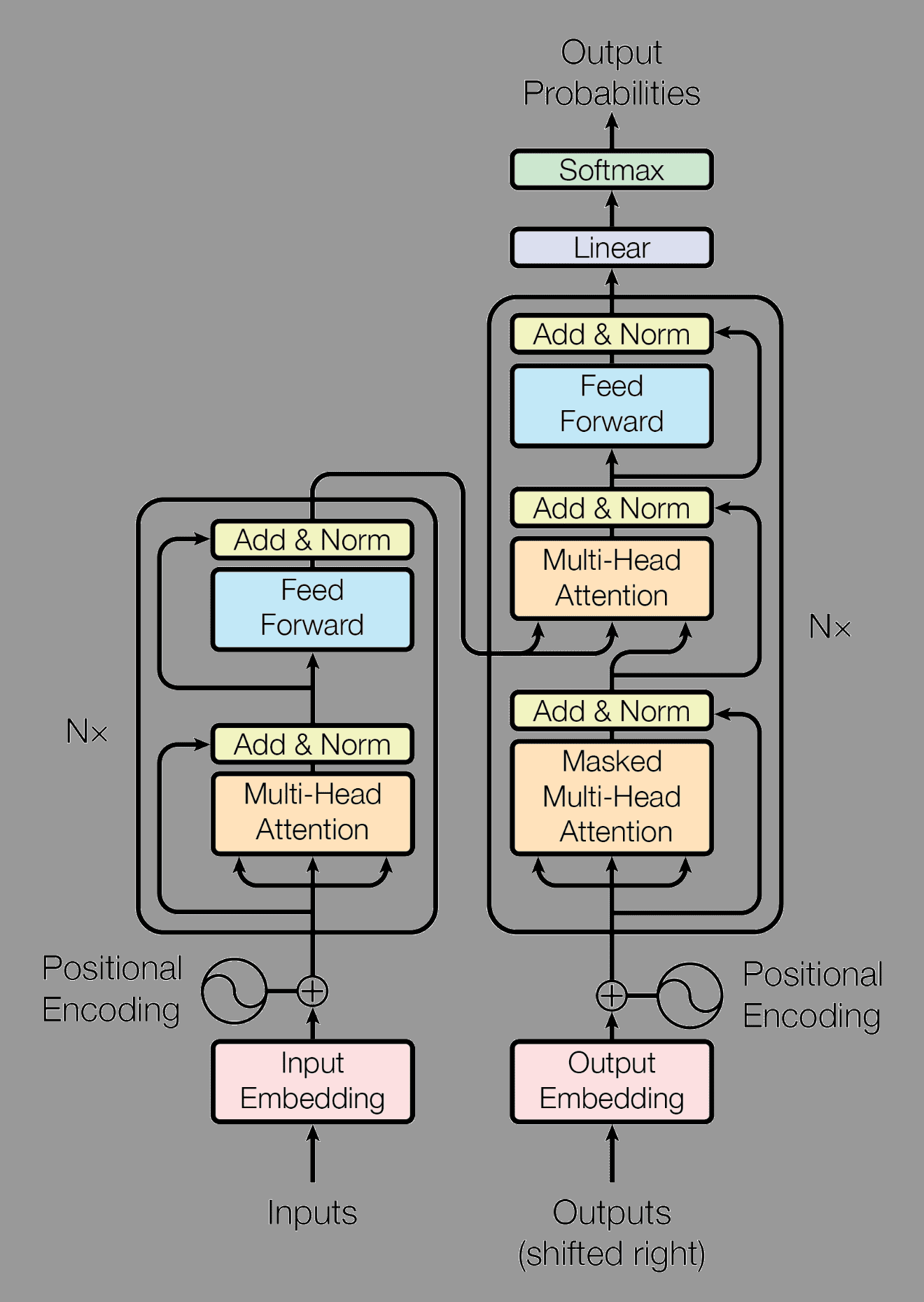
|
